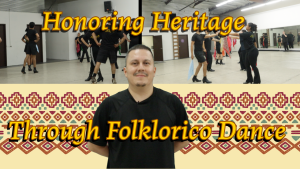Alexie explains his alcoholism and humor
October 22, 2014
For the first time, the 2014 OneBook selection was a work of short stories about the Native American experience, entitled “Blasphemy”.
In “Blasphemy”, the author highlights the brokenness and discord among Native American populations.
Author Sherman Alexie, who grew up on a Spokane Indian territory, arrived to Sacramento State for Author Day to discuss “Blasphemy” and share his personal experiences.
Q: Explain what it was like growing up in an Indian reservation: Kayla- I looked up Q-and-A format in stylebook and all it showed me was Q: , A: but doesn’t say if I include that just once or every time.
A: It was a combination of magic and loss. The beauty of the culture, but with extreme poverty and a lot of social problems.
Q: What was the transition like for you, adjusting to American culture?
A: It was like being a first generation immigrant, even though I’m indigenous. I hadn’t realized how foreign I was until I went to a non-native school. I felt foreign. I felt like I was walking onto Ellis Island.
Q: Did you experience a lot of discrimination?
A: There was a little bit of active racism, a lot of passive racism – just sort of [like] comments, and looks and getting judged. Inside my own school, that all went away because they lived with me, they went to school with me, they knew me. The racism after that was mostly experienced at the hands of other small white towns who didn’t know me. But even that faded as they got to know me over the years. The cure to racism is actually spending time with people and as the years went on, it got better.
Q: Why is alcoholism so prevalent in your works? And what role has that played in your own life?
A: I’m a recovering alcoholic – I’ve been sober for 20 years; my dad died ten years ago of alcoholism; my big sister died in an alcohol-related house fire. I’ve had three aunts and uncles die of alcoholism, so it’s everywhere in my life. It’s a big problem in the Indian world, it’s epidemic.
Q: Why is that?
A: [In] any poor community, when you talk about poverty and lack of opportunity, you’re going to talk about addiction, and alcohol is just the native drug of choice. Other communities have other drugs of choice.
Q: How have you used humor and wit to overcome the struggles of being a Native American?
A: The world is ridiculous – the world is absurd, and really the only way to approach it most of the time is through humor. Humor is a form of religion. That’s how I approach it. I don’t believe in God, but I believe in humor.
Q: I’ve heard from other people that you could have a career as a stand-up comedian. Have you ever considered that?
A: I’ve flirted with it, but it requires a life spent in bars and comedy clubs. That’s not who I am. I’m a college campus guy, not a comedy club guy – and I get to do [comedy] anyway. I just do it for college audiences rather than comedy club audiences.
Q: If you had to choose a specific art form, what would it be?
A: Poems. That’s how I started. That’s still mostly what I write. It’s how I see the world. I write poems constantly. It’s reflexive; it’s just an innate part of who I am. I learned how to write fiction, but I think I was born a poet.
Q: What is one of your personal favorite stories from your work, “Blasphemy”?
A: I think the best thing I’ve ever written is “What You Pawn, I will Redeem,” a story about a homeless man on an odyssey on an epic journey. I think it’s the best thing I’ve ever written.






















































































































